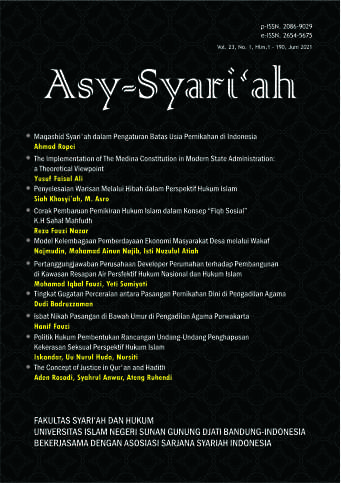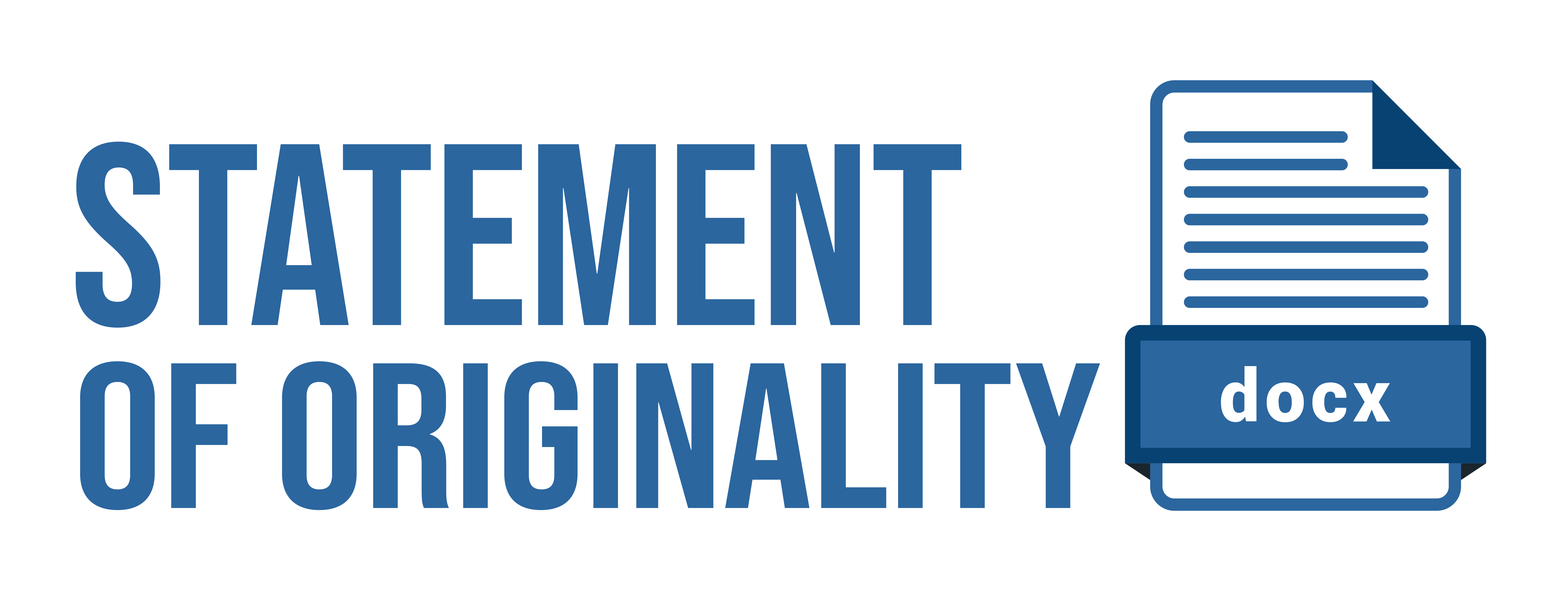Comparative Analysis of Halal Certification Mechanisms Between MUI and BPJPH According to the Perspective of Law No. 33 of 2014 Concerning Halal Product Guarantee
DOI:
https://doi.org/10.15575/as.v25i1.24313Keywords:
Halal Certification, Halal Industry, Halal ProductsAbstract
References
Adinugraha, Hendri hermawan, Rizky Andrean, Wahyudin Ali Ikhrom, Restu Aurora Gita Seyani, Hidayatul Sibyani, Fitri Mukarromah, Ummu Hani Fauzi, et al. Perkembangan Industri Halal Di Indonesia. Edited by Achmad Tubagus Surur. Pekalongan: Scientist Publishing, 2022.
Afendi, Arif. “The Effect of Halal Certification, Halal Awareness and Product Knowledge on Purchase Decisions for Halal Fashion Products.†Journal of Digital Marketing and Halal Industry 2, no. 2 (2020): 145–54. https://doi.org/10.21580/jdmhi.2020.2.2.6160.
Aliyudin, Aliyudin, Khoirul Abror, Khairuddin Khairuddin, and Abdurrahman Hilabi. “Sertifikasi Halal Di MUI Lampung Pasca Undang -Undang Nomor 34 Tahun 2014 Serta Problematika UMKM.†Al Maal: Journal of Islamic Economics and Banking 3, no. 2 (2022): 194. https://doi.org/10.31000/almaal.v3i2.5459.
Ambali, Abdul Raufu, and Ahmad Naqiyuddin Bakar. “People’s Awareness on Halal Foods and Products: Potential Issues for Policy-Makers.†Procedia - Social and Behavioral Sciences 121, no. 3 (2014): 3–25. https://doi.org/10.1016/j.sbspro.
01.1104.
Azizah, Siti Nur. “Kepastian Pengaturan Label Halal Produk Siap Saji Non Kemasan Pada Bisnis Online Bagi Masyarakat Dalam Era Pandemi Covid-19.†Palita: Journal of Social Religion Research 6, no. 2 (2021): 117–32. https://doi.org/10.24256/pal.v6i2.2265.
BPJP. “Pengantar,†2019.
BPJPH. “Alur Proses Sertifikasi Halal,†2019.
Chairunnisyah, Sheilla. “Peran Majelis Ulama Indonesia Dalam Menerbitkan Sertifikat Halal Pada Produk Makanan Dan Kosmetika.†Angewandte Chemie International Edition 3, no. 2 (2018): 10–27.
Dewi, Almira Kemala, and Tetty Marlina Tarigan. “Analisis Hukum Standar Akreditasi Terhadap Sertifikat Halal Luar Negeri Perspektif Fatwa MUI Nomor 4 Tahun 2003 Tentang Standardisasi Fatwa Halal.†Al-Manhaj: Jurnal Hukum Dan Pranata Sosial Islam 4, no. 2 (2022): 631–40. https://doi.org/10.37680/almanhaj.v4i2.2036.
Faridah, H D. “Halal Certification in Indonesia; History, Development, and Implementation.†Journal of Halal Product and Research (JPHR) 2, no. 2 (2019): 68–78.
Faridah, Hayyun Durrotul. “Halal Certification in Indonesia; History, Development, and Implementation.†Journal of Halal Product and Research 2, no. 2 (2019): 68–78. https://doi.org/10.20473/jhpr.vol.2-issue.2.68-78.
Fathoni, Muhammad Anwar, and Tasya Hadi Syahputri. “Potret Industri Halal Indonesia: Peluang Dan Tantangan.†Jurnal Ilmiah Ekonomi Islam 6, no. 3 (2020): 428–35. https://doi.org/10.29040/jiei.v6i3.1146.
Fikriawan, Suad. “SERTIFIKASI HALAL DI INDONESIA: (Analisis Kuasa Simbolik Dalam Kontestasi Fatwa Majelis Ulama Indonesia).†El Barka: Journal of Islamic Economics and Business 01, no. 01 (2018): 27–52. https://doi.org/10.21154/elbarka.v1i1.1446.
Halal Center Cendikia Muslim. “Perbedaan Sertifikasi Halal Skema Reguler Dan Self Declare,†2022.
Hartati, Ralang. “PERAN NEGARA DALAM PELAKSANAAN JAMINAN PRODUK HALAL.†ADIL: Jurnal Hukum 10, no. 1 (2019): 72–92. https://doi.org/10.33476/ajl.v10i1.1066.
Hasan, Agus Suadi, and Baitul Hamdi. “Perkembangan Dan Tantangan Halal Fashion Indonesia Dalam Menjadi Produsen Utama Industri Halal Global.†Al-Azhar Journal of Islamic Economics (AJIE) 4, no. 2 (2022): 71–83. https://doi.org/10.37146/ajie V4i2.134.
Istianah, Istianah, and Gemala Dewi. “Analisis Maṣlahah Pada Konsep Halal Self-Declare Sebelum Dan Pascaenachtment Undang-Undang Cipta Kerja.†Al-Adl : Jurnal Hukum 14, no. 1 (2022): 84–109. https://doi.org/10.31602/al-adl.v14i1.5870.
Kementerian Agama RI. “BPJPH Diresmikan, Menag: Peran MUI Tetap Penting,†2017.
“Laporan Kinerja Tahun 2020 Halal, Badan Penyelenggara Jaminan Produk,†2021.
LPPOM - MUI. “Panduan Umum Sistem Jaminan Halal.†Panduan Umum Sistem Jaminan Halal, 2008, 1–78.
Muheramtohadi, Singgih, and Zuhdan Ady Fataron. “The Islamic Lifestyle of the Muslim Middle Economy Class and the Opportunities for the Halal Tourism Industry in Indonesia.†Journal of Digital Marketing and Halal Industry 4, no. 1 (2022): 91–104. https://doi.org/http://dx.doi.org/10.21580/jdmhi.2022.4.1.10828.
Nur, Fatimah. “JAMINAN PRODUK HALAL DI INDONESIA TERHADAP KONSUMEN MUSLIM Fatimah.†Jurnal Likuid 1, no. 1 (2021): 43–54.
Prayoga, Adistiar. “Beberapa Faktor Yang Mempengaruhi Kesadaran Halal Di Indonesia – Halal UNAIR,†September 2018.
Pujiatuti, Heny, Arief Afendi, Rahman El Junusi, and Agus Mahardianto. “Consumers and Halal Cosmetic Products : Halal Label , Life Style and Word of Mouth Communication.†Journal of Digital Marketing and Halal Industry 4, no. 1 (2022): 67–76.
Pujiyono, Arif, Ro’fah Setyowati, and Idris. “Strategi Pengembangan Umkm Halal Di Jawa Tengah Dalam Menghadapi Persaingan Global.†Indonesia Journal of Halal 1, no. 1 (2018): 1–7. https://doi.org/https://doi.org/10.14710/halal.v1i1.3109.
Rahayu, Riska Delta, and Riski Delta Ningtyas. “Halal E-Commerce in the Muslim Fashion Sector as an Effort to Encourage the Development of Halal Industry in Indonesia.†Journal of Halal Product and Research 4, no. 2 (2021): 71–77. https://doi.org/10.20473/jhpr.vol.4issue.2.71-77.
Rizaty, Monavia Ayu. “Jumlah Penduduk Muslim Indonesia Terbesar Di Dunia Pada 2022,†November 2022.
Satriana, Eka Dewi, and Hayuun Durrotul Faridah. “Wisata Halal: Perkembangan, Peluang Dan Tantangan.†Journal of Halal Product and Research 1, no. 2 (2018): 32–43. https://doi.org/10.20473/jhpr.vol.1-issue.2.32-43.
Sayekti, Nidya Waras. “Strategi Pengembangan Pariwisata Halal Di Indonesia.†Kajian 24, no. 3 (2019): 159–71.
Solahuddin, Gazali. “Sertifikasi Halal Produk Obat Dan Farmasi Masih Tertinggal, Padahal Penting,†2022.
“State of the Global Islamic Economy Report: Unlocking Opportunity.†Dinar Standard in Partnership with Salam Gateway, 2022.
Subarkah, Alwafi Ridho. “Potensi Dan Prospek Wisata Halal Dalam Meningkatkan Ekonomi Daerah ( Studi Kasus : Nusa Tenggara Barat ).†Sospol : Jurnal Sosial Politik 4, no. 2 (2018): 49–72. https://doi.org/10.22219/sospol.v4i2.5979.
Ulya, Fika Nurul. “Hingga 2022, 10.643 UMK Dapat Sertifikasi Halal LPPOM MUI,†2022.
Waharini, Faqiatul Mariya, and Anissa Hakim Purwantini. “Model Pengembangan Industri Halal Food Di Indonesia.†Jurnal Muqtasid 9, no. 1 (2018): 1–13. http://dx.doi.org/10.18326/muqtasid.v9i1.1-13.
Warto, W, and S Samsuri. “Sertifikasi Halal Dan Implikasinya Bagi Bisnis Produk Halal Di Indonesia.†Al Maal: Journal of Islamic Economics and … 2, no. 1 (2020): 98–112. https://doi.org/10.31000/almaal.v2i1.2803.
Warto, Warto, and Samsuri Samsuri. “Sertifikasi Halal Dan Implikasinya Bagi Bisnis Produk Halal Di Indonesia.†Al Maal: Journal of Islamic Economics and Banking 2, no. 1 (2020): 98. https://doi.org/10.31000/almaal.v2i1.2803.
Widyantoro, S, R Arsyad, and M Fathoni. “Halal Food Industry in Southeast Asia’s Muslim Majority Countries: A Reference for Non-Muslim Countries.†Intellectual Discourse, 2019.
Widyantoro, Sigid, Rafika Arsyad, and Mochammad Fathoni. “Halal Food Industry in Southeast Asia’s Muslim Majority Countries: A Reference for Non-Muslim Countries.†Intellectual Discourse 27, no. Special Issue (2019): 767–81.
Zuhriya, Dewi Aminatuz. “Kemenparekraf Kembangkan Wisata Halal Di 10 Destinasi Pariwisata,†2019.
Downloads
Published
How to Cite
Issue
Section
Citation Check
License
The author whose published manuscript approved the following provisions:
- Authors retain copyright and grant the journal right of first publication with the work simultaneously licensed under a Attribution-ShareAlike 4.0 International (CC BY-SA 4.0) License that allows others to share the work with an acknowledgment of the work's authorship and initial publication in this journal.
- Authors are able to enter into separate, additional contractual arrangements for the non-exclusive distribution of the journal's published version of the work (e.g., post it to an institutional repository or publish it in a book), with an acknowledgment of its initial publication in this journal.
- Authors are permitted and encouraged to post their work online (e.g., in institutional repositories or on their website) prior to and during the submission process, as it can lead to productive exchanges, as well as earlier and greater citation of published work (See The Effect of Open Access).






